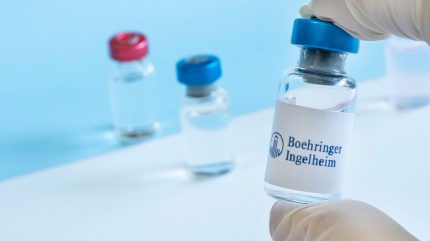
The US Food and Drug Administration (FDA) has granted approval for Boehringer Ingelheim’s SPEVIGO injection to treat generalised pustular psoriasis (GPP).
The treatment is indicated for use in adult and paediatric patients 12 years and above with a minimum weight of 40kg.

Discover B2B Marketing That Performs
Combine business intelligence and editorial excellence to reach engaged professionals across 36 leading media platforms.
This development follows a similar approval by the Chinese National Medical Products Administration for reducing GGP occurrence in patients of the same age group.
A humanised selective IgG1 antibody, SPEVIGO attaches to the interleukin-36 receptor, which plays a crucial role in the immune system’s signalling pathway and is implicated in the pathogenesis of GPP.
The FDA’s decision was largely based on the positive outcomes of the EFFISAYIL 2 clinical trial.
The 48-week study, involving 123 patients, demonstrated that SPEVIGO significantly reduced GPP flare risk by 84% versus placebo.

US Tariffs are shifting - will you react or anticipate?
Don’t let policy changes catch you off guard. Stay proactive with real-time data and expert analysis.
By GlobalDataRemarkably, after week four, no flares were observed in the high-dose SPEVIGO group.
However, the trial also reported an increased incidence of certain adverse events associated with SPEVIGO treatment.
These included reaction at the injection site, urinary tract infection, arthralgia, and pruritus, occurring at a rate of at least nine cases per 100 patient-years compared to the placebo arm.
Boehringer Ingelheim Human Pharma head Carinne Brouillon said: “SPEVIGO’s new approvals constitute a fundamental change for people living with GPP, addressing their huge need for acute and chronic treatment.
“Experiencing GPP can be mentally and physically devastating, leaving those affected with uncertainty and fear of the next episode. Therefore, expanding the treatment of GPP is a critical step towards addressing patients’ needs.”
This month, Boehringer signed a global collaboration and exclusive option-to-license agreement with Sosei Heptares for the development of a new class of therapies for all schizophrenia symptoms.
Under the deal, the companies will develop and market a portfolio comprising G protein-coupled receptor 52 agonists from Sosei Heptares to treat positive, negative, and cognitive symptoms linked to schizophrenia.




